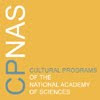From: Giovanni Frazzetto
Date: Sun, 11 Mar 2007 10:51:55 +0100 (CET)
Dear All,S
orry for lagging behind.
As a practicing scientist, in this second phase of the symposium, I feel summoned to first address the question introduced by Suzanne Anker concerning the problematics of being a scientist. In one sentence I think the main problem for scientists is the difficulty in coherently mixing three main activities, that of ‘knowing, ‘doing’ and ‘being’. In other words, how much of their knowledge and practice of their profession clashes or in general coexists with their way of being in the world. Is a scientist’s field of expertise influencing his/her world view and actions?In “Science as Vocation” (1917) Max Weber states: “Natural science gives us an answer to the question of what we must do if we wish to master life technically. It leaves quite aside or assumes for its purposes, whether we should and do wish to master life technically and whether it ultimately makes sense to do so”. Let us go one step further: is science, more strictly biology, also a means of self-clarification? Is biology the way to true being?Michel Foucault stressed the inseparable and problematic link between subjectivity and truth in Western culture. How intrusive is the subject in this process of objectivisation? Does this truth define me or tell me whoI am?There is no doubt about the pervasive power of new discoveries in biology on society and on individuals. Biological knowledge is employed to define individuals in biological terms. For scientists, who are at the same time producers and consumers of this knowledge, the identification with it is more problematic. The question is whether science practice is an ethical activity that can be ascribed to a pattern of conduct, a ‘Lebensfuehrung’ or self-regulation. For instance, the dissection of the neurochemical mechanisms underlying emotions brings forward a more ‘disenchanted’ visionof them of which scientists are the producers and with which they need to deal with in their own lives when they return home from the laboratory. Perhaps this holds true for artists as well. Having read the collection of scientists’s journals edited by Jon Turneyand having kept a journal myself documenting the evolution of my daily experimentation, I can hardly agree more with the conclusion that scientists are as human as anyone else. This type of self-writing (as opposed to experimental notes or laboratory records) promotes ‘reflexivity’ and traces the intersection between ‘knowing’, ‘doing’ and‘being’ that I introduced at the beginning. Coming back to the issues presented by Carl Djerassi at the start of this session-I agree that narrative and theatrical representations can certainly be very powerful means to describe scientists’ dilemmas or idiosyncrasies. All the plays mentioned, and many others, do this exquisitely well. However, I agree with Suzanne Anker when she reminds us that the public perception of scientists is not necessarily equal to the vision scientists cherish of themselves. Also, I am not sure I can agree with the statement that hidden among lines, graphs and pictures of a laboratory notebook are often burning personal issues. When generating results, an experimenter’s personal issues do not cease to burn or exist in parallel. However, they are supposed to remain invisible to the reader of those lab protocols. Detailed historical analysis of objectivity (Daston, Galison) speak to the rise of an ‘a perspectival objectivity’ as the ethos of the interchangeable observer and operator, unmarked by style and idiosyncrasy that might interfere with the generation and communication of results. More later.
Giovanni Frazzetto
Giovanni Frazzetto, PhD
'Society in Science'
Branco Weiss Fellow
(www.society-in-science.ethz.ch)
European Molecular Biology Laboratory
to post a response, click on the "comment" button below
to return to the main page, to go www.visualcultureandbioscience.org
Subscribe to:
Post Comments (Atom)

No comments:
Post a Comment